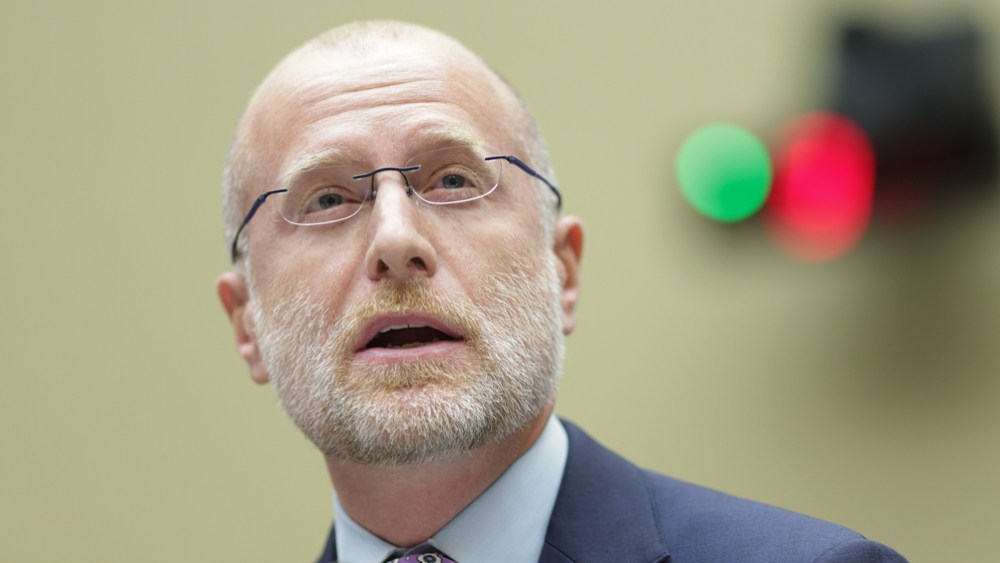FCC chairman Brendan Carr has already got Hollywood in a lather over his aggressive pursuit of specious complaints involving the editorial content of “60 Minutes,” NPR, PBS and other major media platforms. He’s also pursuing probes of Disney and Comcast for what he has described as “promoting invidious forms of DEI discrimination” — actions that are widely seen as politically motivated and extending far beyond the commission’s regulatory reach.
Now Carr is hinting that the FCC also plans to dig into broadcast network affiliation agreements — the contracts between ABC, CBS, NBC and Fox with the 150-plus TV stations around the country that carry each network. Carr said he has been spurred to act amid what he said were growing complaints from station owners that national networks are forcing them to air programs that they would not otherwise carry.
“I hear directly from local broadcasters and say, ‘Look, I’d like to do something different. I’d like to serve the needs of my local community. I’d like more localism, but I have to take this national program’ in cases where they don’t even want to. So we hear a lot of complaints about that,” Carr told CNBC anchor David Faber on Monday during a Q&A at the Milken Institute Global Conference in Beverly Hills. “What I want to do is empower those local broadcasters actually serve their local communities. There’s lots of ways we can do that.”
FCC probes of network-affiliate relations could be an arduous process for all involved. Carr did offer one olive branch to station owners. He once again suggested that the FCC should reform what he called “arcane artificial limits” on TV station ownership. As broadcasters have stressed for more than a decade, their ownership of TV stations is tightly regulated but tech giants such as Google, Meta, Amazon and Apple are able to have to global footprints and increasing influence across politics, media and culture. That is one area that the major networks — all of which have strong O&O groups — and local broadcasters may agree with Carr on the need for action.
“Looking at ownership reform might be one way to do it,” Carr said. “We have these arcane artificial limits on how many TV stations any one company can own. And of course, that doesn’t apply to Big Tech. So you have relatively small TV station groups that are competing with Google and Facebook and others in the advertising market. So I want to ultimately empower those local stations and, frankly, constrain some of the power of those national programmers.”
Carr and Faber spent most of the 20-minute session in the weeds of the FCC’s approach to spectrum auctions — which also matter to broadcasters. Faber did press the FCC boss on his handling of the “60 Minutes” complaint as well as the commission’s review of the pending sale of CBS parent Paramount Global to Skydance Media.
The FCC’s approval of CBS-owned TV stations’ license transfer is holding up the closing of the $8 billion sale. President Donald Trump also has a pending $20 billion lawsuit against “60 Minutes” over its October 2024 interview of then-presidential candidate Kamala Harris. The suit has been decried as baseless and an unvarnished example of the most powerful political figure in the country trying to punish a media outlet for coverage he didn’t like.
Carr once again strained credulity by insisting that the FCC probe of “60 Minutes,” the commission’s review of the larger Paramount Global sale and Trump lawsuit are unconnected. He maintained that he hasn’t read Trump’s complaint. That case, filed in federal court in Texas, makes the novel legal argument that he was damaged as a political candidate and as an owner of social media outlet Truth Social because of CBS’ handling of the Harris interview.
“We’re staying in our lane and just reviewing it. We’re running our normal course of review,” Carr said of the Paramount Global transaction.
Carr, who was an attorney for the FCC before being named a commissioner in 2017 by Trump in his first term, closed by praising the work of the commission staff during Trump 2.0’s whirlwind first 100 days in office. Carr assured Faber that he is “just having the time of my life right now.”
Read the full article here








